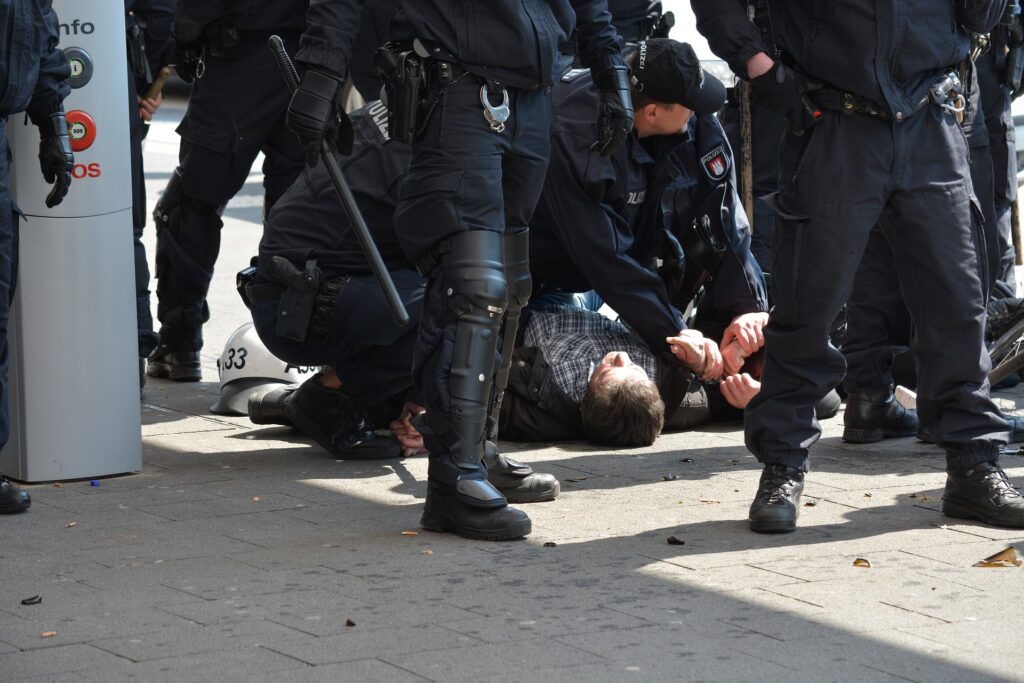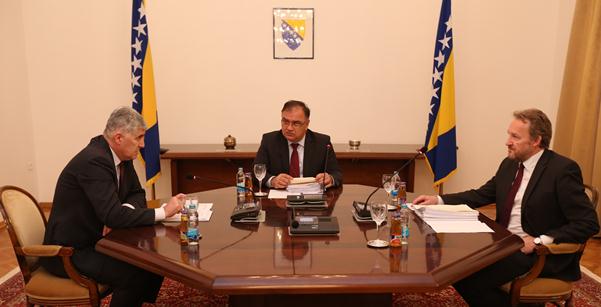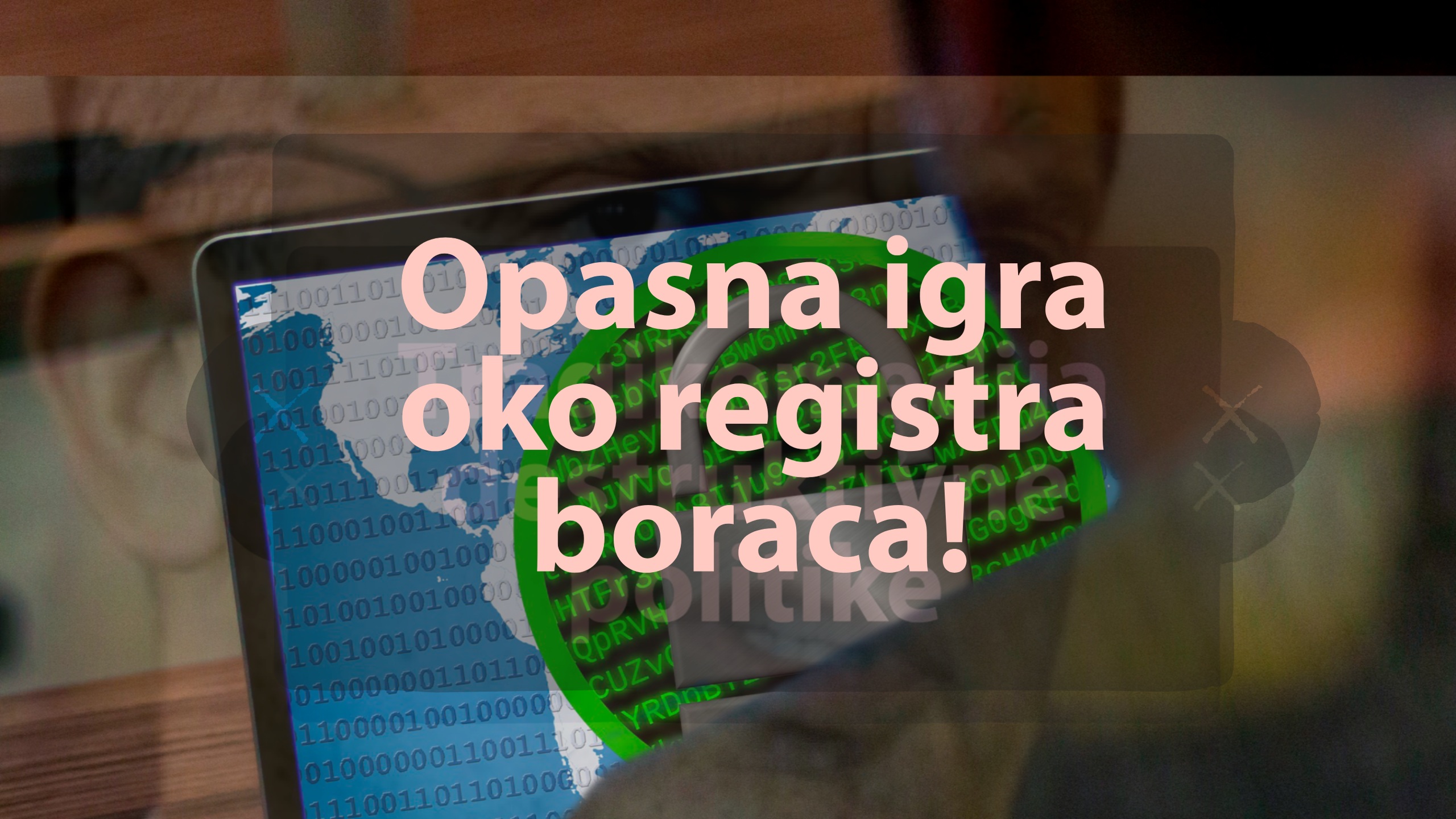Aneksom 10 Daytonskog mirovnog sporazuma potpisnici sporazuma su zahtijevali formiranje institucije Visokog Predstavnika, a čija je uloga nadgledanje provodjenja civilnog apsekta mirovnog sporazuma, nametanje zakona i smjenjivanje ekstremno-terorističkih političkih subjekata i pojedinaca (npr. Kamikaza). U drugom artiklu Aneksa 10 (Article II) potpisnice sporazuma su eksplicitno definisale i na njihov zahtjev dali postojeća ovlaštenja funkciji Visokog Predstavnika. Dakle, UN je po ovom zahtjevu, kao tijelo koje je nadgledalo provodjenje Daytonskog sporazuma, bio dužan da donese rezoluciju kojom će funkcija Visoki Predstavnik u BiH biti potvrđena. Personalna rješenja, ko će biti Visoki Predstavnik je time za UN bila formalnost kojom su se bavile druge institucije, odnosno međunarodni faktori, npr. PIC danas.
Dalje u tekstu, pročitajte odredbe Aneksa 9-11 Daytonskog mirovnog sporazuma.
To treba obavezno da pročita i The High Representative Christian Schmidt.
Destruktivno i opasno agitovanje Ruskog Ambasadora u BiH
Drugim riječima, Ruski Ambasador u BiH i neofašistički ekstremista (terorista?) iz manjeg BiH entiteta lažu da UN personalno treba potvrditi “ko je Visoki Predstavnik”. UN je morao donijeti rezoluciju da se na zahtjev potpisnica “legalizuje” institucija Visoki Predstavnik (potvrditi Aneks 10), a personalno popunjavanje nije stvar rezolucija nego PIC-a. To je jasno naravno svima, pogotovu Rusiji, ali Rusija je trenutno faktor koji u saradnji sa neofašističkim-terorističkim organizacijama podržava pripreme za sukobe na području Bosne i Hercegovine.
RELEVANTNI DIJELOVI DAYTONSKOG SPORAZUMA
Article 9
The Parties shall cooperate fully with all entities involved in implementation of this peace settlement, as described in the Annexes to this Agreement, or which are otherwise authorized by the United Nations Security Council, pursuant to the obligation of all Parties to cooperate in the investigation and prosecution of war crimes and other violations of international humanitarian law.
Article 10
The Federal Republic of Yugoslavia and the Republic of Bosnia and Herzegovina recognize each other as sovereign independent States within their international borders. Further aspects of their mutual recognition will be subject to subsequent discussions.
Article 11
This Agreement shall enter into force upon signature.
Done at Paris, this 14 day of December, 1995, in the Bosnian, Croatian, English and Serbian languages, each text being equally authentic.
For the Republic of Bosnia and Herzegovina
For the Republic of Croatia
For the Federal Republic of Yugoslavia
Witnessed by:
European Union Special Negotiator
For the French Republic
For the Federal Republic of Germany
For the Russian Federation
For the United Kingdom of Great Britain and Northern Ireland
For the United States of America
Annex 10
Agreement on Civilian Implementation
The Republic of Bosnia and Herzegovina, the Republic of Croatia, the Federal Republic of Yugoslavia, the Federation of Bosnia and Herzegovina, and the Republika Srpska (the “Parties”) have agreed as follows:
Article I: High Representative
- The Parties agree that the implementation of the civilian aspects of the peace settlement will entail a wide range of activities including continuation of the humanitarian aid effort for as long as necessary; rehabilitation of infrastructure and economic reconstruction; the establishment of political and constitutional institutions in Bosnia and Herzegovina; promotion of respect for human rights and the return of displaced persons and refugees; and the holding of free and fair elections according to the timetable in Annex 3 to the General Framework Agreement. A considerable number of international organizations and agencies will be called upon to assist.
- In view of the complexities facing them, the Parties request the designation of a High Representative, to be appointed consistent with relevant United Nations Security Council resolutions, to facilitate the Parties’ own efforts and to mobilize and, as appropriate, coordinate the activities of the organizations and agencies involved in the civilian aspects of the peace settlement by carrying out, as entrusted by a U.N. Security Council resolution, the tasks set out below.
Article II: Mandate and Methods of Coordination and Liaison
- The High Representative shall:
- Monitor the implementation of the peace settlement;
- Maintain close contact with the Parties to promote their full compliance with all civilian aspects of the peace settlement and a high level of cooperation between them and the organizations and agencies participating in those aspects.
- Coordinate the activities of the civilian organizations and agencies in Bosnia and Herzegovina to ensure the efficient implementation of the civilian aspects of the peace settlement. The High Representative shall respect their autonomy within their spheres of operation while as necessary giving general guidance to them about the impact of their activities on the implementation of the peace settlement. The civilian organizations and agencies are requested to assist the High Representative in the execution of his or her responsibilities by providing all information relevant to their operations in Bosnia- Herzegovina.
- Facilitate, as the High Representative judges necessary, the resolution of any difficulties arising in connection with civilian implementation.
- Participate in meetings of donor organizations, particularly on issues of rehabilitation and reconstruction.
- Report periodically on progress in implementation of the peace agreement concerning the tasks set forth in this Agreement to the United Nations, European Union, United States, Russian Federation, and other interested governments, parties, and organizations.
- Provide guidance to, and receive reports from, the Commissioner of the International Police Task Force established in Annex 11 to the General Framework Agreement.
- In pursuit of his or her mandate, the High Representative shall convene and chair a commission (the “Joint Civilian Commission”) in Bosnia and Herzegovina. It will comprise senior political representatives of the Parties, the IFOR Commander or his representative, and representatives of those civilian organizations and agencies the High Representative deems necessary.
- The High Representative shall, as necessary, establish subordinate Joint Civilian Commissions at local levels in Bosnia and Herzegovina.
- A Joint Consultative Committee will meet from time to time or as agreed between the High Representative and the IFOR Commander.
- The High Representative or his designated representative shall remain in close contact with the IFOR Commander or his designated representatives and establish appropriate liaison arrangements with the IFOR Commander to facilitate the discharge of their respective responsibilities.
- The High Representative shall exchange information and maintain liaison on a regular basis with IFOR, as agreed with the IFOR Commander, and through the commissions described in this Article.
- The High Representative shall attend or be represented at meetings of the Joint Military Commission and offer advice particularly on matters of a political-military nature. Representatives of the High Representative will also attend subordinate commissions of the Joint Military Commission as set out in Article VIII(8) of Annex 1A to the General Framework Agreement.
- The High Representative may also establish other civilian commissions within or outside Bosnia and Herzegovina to facilitate the execution of his or her mandate.
- The High Representative shall have no authority over the IFOR and shall not in any way interfere in the conduct of military operations or the IFOR chain of command.
Article III: Staffing
- The High Representative shall appoint staff, as he or she deems necessary, to provide assistance in carrying out the tasks herein.
- The Parties shall facilitate the operations of the High Representative in Bosnia and Herzegovina, including by the provision of appropriate assistance as requested with regard to transportation, subsistence, accommodations, communications, and other facilities at rates equivalent to those provided for the IFOR under applicable agreements.
- The High Representative shall enjoy, under the laws of Bosnia and Herzegovina, such legal capacity as may be necessary for the exercise of his or her functions, including the capacity to contract and to acquire and dispose of real and personal property.
- Privileges and immunities shall be accorded as follows:
- The Parties shall accord the office of the High Representative and its premises, archives, and other property the same privileges and immunities as are enjoyed by a diplomatic mission and its premises, archives, and other property under the Vienna Convention on Diplomatic Relations.
- The Parties shall accord the High Representative and professional members of his or her staff and their families the same privileges and immunities as are enjoyed by diplomatic agents and their families under the Vienna Convention on Diplomatic Relations.
- The Parties shall accord other members of the High Representative staff and their families the same privileges and immunities as are enjoyed by members of the administrative and technical staff and their families under the Vienna Convention on Diplomatic Relations.
Article IV: Cooperation
The Parties shall fully cooperate with the High Representative and his or her staff, as well as with the international organizations and agencies as provided for in Article IX of the General Framework Agreement.
Article V: Final Authority to Interpret
The High Representative is the final authority in theater regarding interpretation of this Agreement on the civilian implementation of the peace settlement.
Article VI: Entry into Force
This Agreement shall enter into force upon signature.
For the Republic of Bosnia and Herzegovina
For the Republic of Croatia
For the Federal Republic of Yugoslavia
For the Federation of Bosnia and Herzegovina
For the Republika Srpska
Postoje samo dvije mogućnosti:
- Uhapsiti pomahnitalog neofašističkog ekstremistu (koji je odgovoran i za davanje zelenog svjetla za zločine 90-tih)
- Ili početi pripreme za odbrambeni rat
- Jer Visoki Predstavnik drži bonske ovlasti u ladici, ali kaže “očekuje da institucije funkcionišu”, a one ne funkcionišu
Pa počnite više funkcionisati, jer i monstrum Karadžič govorio je o miru, a napravio genocid!





